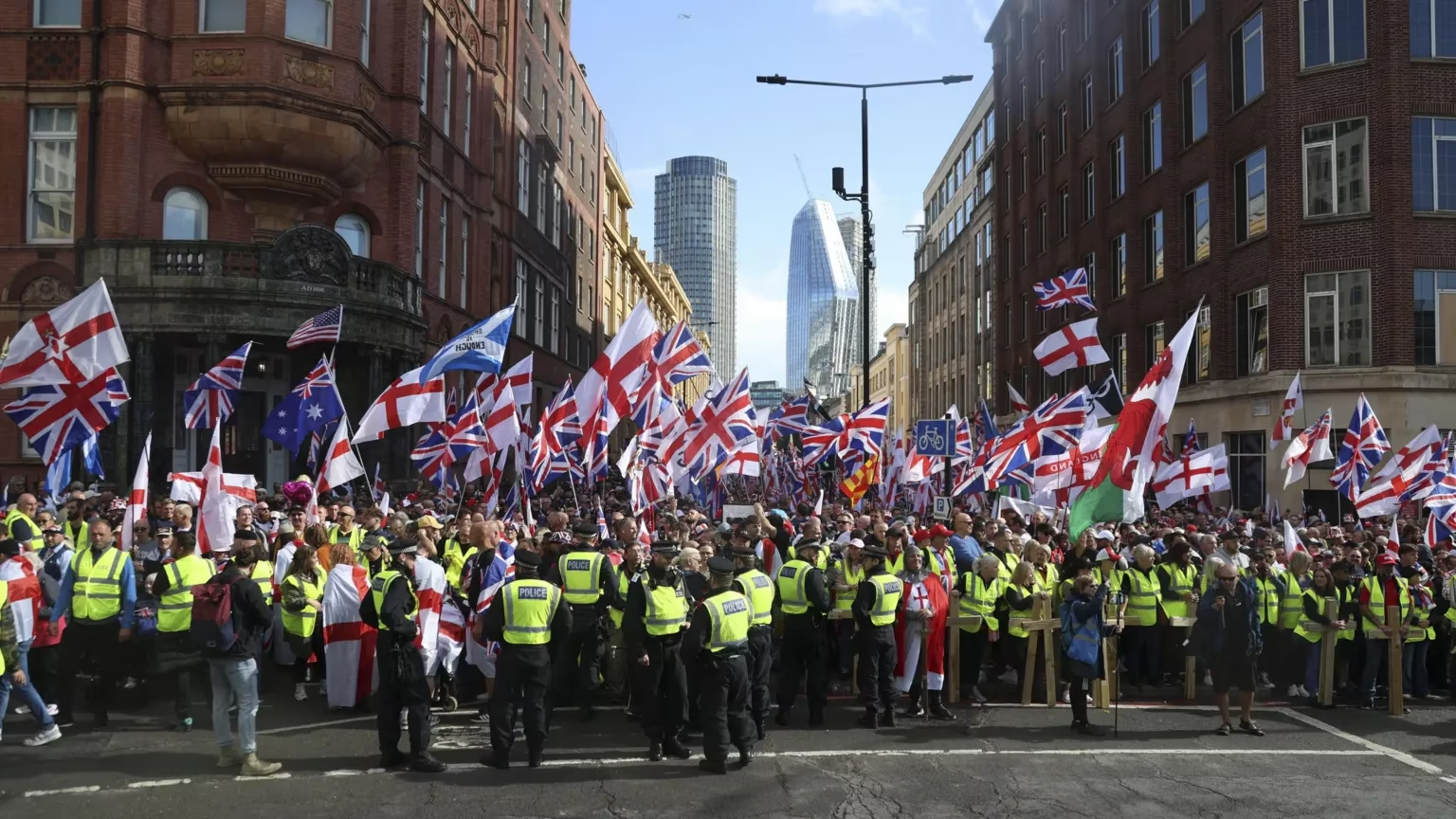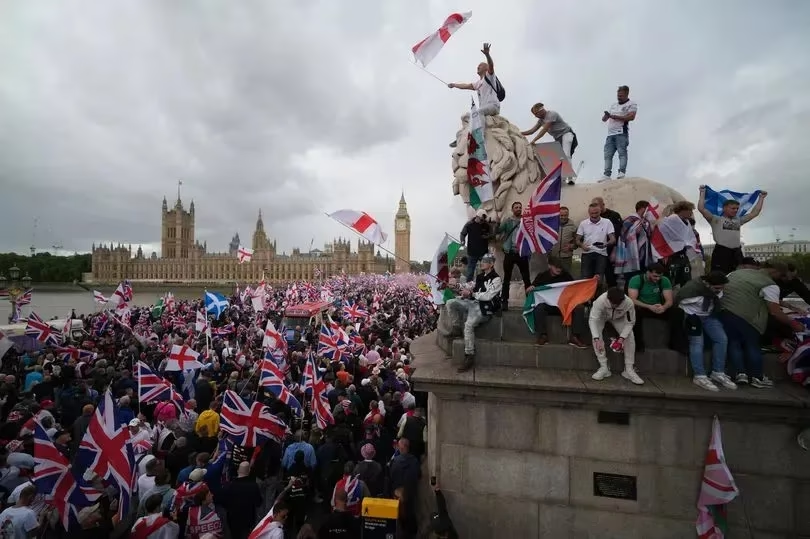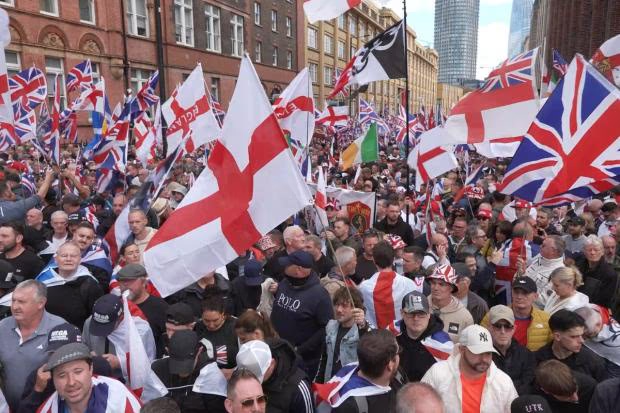Tens of thousands of demonstrators marched through central London on Saturday, September 13, carrying English and British flags at a rally organized by activist Tommy Robinson, known for his anti-immigrant and anti-Islam rhetoric.
Police announced a major security presence in the capital, as a counter-march by the Stand Up to Racism movement was scheduled nearby. Both events continued a tense summer in Britain, marked by disputes over immigration and free speech.
By midday, tens of thousands had gathered on the streets south of the Thames and marched toward Westminster, home of the British Parliament. Among the demonstrators were those carrying the Union Jack and the red-and-white cross of St. George, England’s emblem; some waved American and Israeli flags and wore MAGA caps linked to Donald Trump. Chants targeted Prime Minister Keir Starmer, and placards bore slogans such as "send them home." Families with children also joined the rally.
The march took place just over a year after anti-immigration riots in several cities, which Robinson himself was accused of fueling through provocative online posts.
Tommy Robinson Draws Tens of Thousands, Framing the March as a Defense of Free Speech and a Tribute to Charlie Kirk
Tommy Robinson presented the Unite the Kingdom march as "a celebration of free speech." The program also included a tribute to American conservative activist Charlie Kirk, who was killed on Wednesday.
"Hundreds of thousands of people have already filled the streets of central London, uniting for our freedom," Robinson wrote on X.
The organizer’s real name is Stephen Yaxley-Lennon. He calls himself a journalist exposing state abuses, and among his supporters is American billionaire Elon Musk.

Reform UK, Britain’s largest anti-immigration party and a recent leader in the polls, distanced itself from Robinson given his numerous criminal convictions.
"We want our country back, we want free speech back," said rally participant Sandra Mitchell. "Illegal migration must stop. We believe in Tommy."
London’s Metropolitan Police deployed more than 1,600 officers, including 500 brought in from other regions. In addition to the two marches, police resources were also spread across other large events—football matches and concerts.
"We will approach this as we do any other protest: working without fear or bias, ensuring people can lawfully express their views, but responding firmly to any breaches or offenses," said Commander Claire Haines, who led the operation.
She acknowledged that previous rallies had seen "anti-Muslim rhetoric and offensive chants" from a minority of participants, but stressed that Londoners should not feel intimidated or compelled to stay at home.
Far-Right Politicians and Activists Join the March as Britain’s Debates Over Migration and Free Speech Intensify
Last Saturday in London, police arrested nearly 900 people during a demonstration against the ban on the group Palestine Action. The new march, set to cross Westminster Bridge and end with a rally near Downing Street, is drawing far-right activists from Europe and North America. Among the announced participants are French politician Éric Zemmour, Alternative for Germany MP Petr Bystron, British commentator Katie Hopkins and Canadian psychologist Jordan Peterson.


Immigration has become the dominant political issue in Britain, eclipsing even concerns about the faltering economy. The country is registering a record number of asylum applications: more than 28,000 migrants have already crossed the Channel in small boats this year.
Keir Starmer’s government is also facing mounting accusations of curbing free speech. Criticism has grown particularly sharp since July, when the authorities designated Palestine Action a terrorist organization. The move followed an incident in which activists sprayed paint into the engines of two Royal Air Force planes they believed were involved in Israel’s Gaza campaign. Since then, police have used anti-terror legislation to detain hundreds of demonstrators whose only action was holding placards in support of the movement.
Even greater controversy followed the recent arrest at Heathrow Airport of Irish screenwriter Graham Linehan, best known for his comedies—he was charged with “insulting transgender people” online. The case drew ridicule and sharp criticism of the authorities.
Meanwhile, red-and-white English flags have appeared en masse on streets and even painted across road surfaces. Supporters describe it as a spontaneous campaign of national pride, while anti-racism activists see it as a display of hostility toward foreigners.
